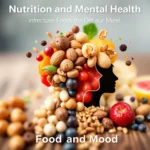There is no doubt that coffee is not just a drink, but a cultural phenomenon that has captured the hearts of millions. From early morning cups that help us wake up to evening gatherings with friends in cozy cafes, coffee is everywhere. It not only invigorates but also connects people, being part of many traditions and rituals. However, despite its popularity, it’s important to understand how coffee affects our body and how to find the golden mean in its consumption to reap the maximum benefits and avoid potential negative consequences. In this context, understanding the daily coffee norm becomes crucial in maintaining a healthy balance.
Benefits and Harms of Coffee
Firstly, let’s explore why coffee holds such a special place in many people’s diets. According to numerous scientific studies, coffee carries not only the invigorating caffeine but also a host of beneficial substances. These include antioxidants such as chlorogenic acid, which may help reduce the risk of developing chronic diseases, including type 2 diabetes and some forms of cancer. Coffee also contains B vitamins, potassium, magnesium, and manganese, which play an important role in maintaining the health of our body. However, considering that there is a norm for daily coffee consumption, it’s important to control its intake to maintain optimal health and well-being.
However, it’s also important to remember the potential negative aspects of coffee consumption. Excessive coffee consumption can lead to increased stress levels, insomnia, and worsening of certain diseases such as peptic ulcer or gastritis. Caffeine can also cause dependence and withdrawal symptoms when its consumption is abruptly stopped. Thus, the benefits and harms of coffee depend on many factors, including individual sensitivity to caffeine and overall health status.
Recommended Daily Caffeine Intake
A key point in maintaining a healthy balance in coffee consumption is understanding the recommended daily caffeine intake. For most healthy adults, a safe dose is about 400 mg of caffeine per day. To put this into more understandable terms, this is equivalent to approximately 3-5 standard cups of coffee, depending on their strength and size.
Nevertheless, it is important to emphasize that sensitivity to caffeine varies greatly among different people. Some may feel fine consuming the stated amount, while others may experience undesirable symptoms such as anxiety or palpitations even after one cup. Factors that influence sensitivity include genetics, age, tolerance to caffeine, and overall health. Therefore, I recommend approaching coffee consumption with consideration of your body’s individual characteristics and paying attention to any signals it sends you.
How Different Coffee Brewing Methods Affect Caffeine Content

The variety of coffee brewing methods not only adds enjoyment to its consumption process but also affects the caffeine content in your cup. Let’s consider several popular types of coffee.
Espresso, although it contains more caffeine per unit volume compared to other brewing methods, is usually served in small quantities. A standard serving of espresso (about 30 ml) contains about 63 mg of caffeine.
Filter coffee, such as Americano, usually contains less caffeine in milliliters, but due to the larger volume of the serving (usually 240 ml), the total amount of caffeine can be higher – about 95-200 mg per cup.
Cappuccino and latte, popular milk coffee options, are usually made using one serving of espresso, so their caffeine content is similar to one serving of espresso, plus the added milk.
In addition to these types, there are other brewing methods, such as Turkish coffee or French press (cafetière), which also vary in caffeine content. It’s important to remember that the actual amount of caffeine can vary depending on the type of coffee beans, their roast, and the grind size.
Specific Groups of People and Coffee
Coffee affects different groups of people in various ways, and special attention should be given to those in unique physiological states or who have specific health-related restrictions.
For pregnant women, for example, it is recommended to limit caffeine intake to 200 mg per day, which is equivalent to about one cup of coffee. Studies have shown that high caffeine consumption during pregnancy can be associated with a risk of low birth weight and other complications.
Nursing women should also be cautious with caffeine, as it can be transferred to the baby through breast milk. While small amounts are usually safe, excessive consumption can cause irritability and sleep disturbances in infants.
People with certain medical conditions, such as gastritis, peptic ulcer disease, cardiovascular diseases, or anemia, should approach coffee consumption with special caution. Coffee can exacerbate symptoms of acid reflux or cause undesirable interactions with some medications. It’s important to remember that information about the impact of coffee on health is constantly being updated, and in case of doubts or chronic diseases, it is advisable to consult a doctor. The optimal daily coffee norm for these people is of particular importance to avoid additional health risks.
How Excessive Coffee Consumption Affects Health
When it comes to coffee, as with many other things, balance is key. Excessive consumption of coffee can lead to a number of undesirable health consequences.
One of the most noticeable effects is the impact on the cardiovascular system. High doses of caffeine can cause increased heart rate and elevated blood pressure, especially in people with certain predispositions. While for most healthy adults these effects are temporary, for people with heart conditions, they can pose a serious risk.
The impact of coffee on sleep should also not be underestimated. Caffeine can significantly impair sleep quality, especially if consumed in the second half of the day. This can lead to a reduction in overall sleep time, disruption of its structure, and a decrease in its restorative effect.
Furthermore, there is a risk of developing caffeine dependency. Regular consumption of large doses can lead to a need for increasing amounts of caffeine to achieve the desired alertness effect, increasing the risk of overconsumption.
In conclusion, while coffee can be an important and enjoyable part of your day, it is important to approach its consumption wisely and cautiously to avoid potential negative health consequences.
Conclusion
In summarizing our discussion about coffee, the key point is moderation and attention to your body’s signals. Coffee is not only a source of pleasure and alertness but also a substance that affects many aspects of our health.
It is recommended to adhere to the established safe norm of caffeine consumption – no more than 400 mg per day for a healthy adult, which is approximately equivalent to 3-5 cups of coffee. However, it’s important to remember that individual sensitivity to caffeine can vary significantly, and some people may need to reduce this norm.
Pregnant and breastfeeding women, as well as people with certain health-related restrictions, should approach coffee consumption with special care. In case of doubts, it’s always better to consult a doctor.
Also, don’t forget that coffee can affect the quality of your sleep, especially if consumed in the latter half of the day.
In conclusion, coffee is a wonderful drink that can be enjoyed and enjoyed if consumed responsibly and mindfully. Listen to your body and find the balance that suits you, and do not forget that the amount of daily coffee norm is individual for each person.















